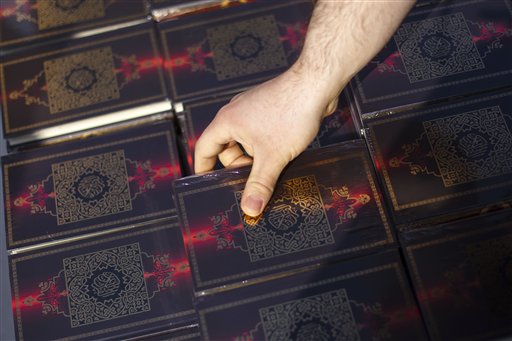An American Muslim’s take on Islamophobia
There's more to the religion than most people realize.
May 5, 2016
Let me start this whole thing off with a qualification: I am not the best Muslim. I believe in everything in the Qu’ran (the Muslim book of faith), and I unquestionably believe in God, but as of late, I haven’t been too strict in following all the rules. Still, I am proud to be a member of my faith.
I’ve needed that pride as of late. Since the atrocities perpetrated by ISIS, all eyes have been on the Muslim faith. Anti-Muslim rhetoric has even found its way into the presidential campaign. It is not limited to the words of individuals on the political right, such as Dr. Ben Carson, Senator Ted Cruz or Donald Trump. These views also extend to members of the left such as noted atheist Bill Maher, who has claimed that “the more you know (about Islam) the more you would be afraid.”
Inevitably, as these individuals have seen benefits by stoking the Islamophobic fires (Dr. Ben Carson received some hefty campaign contributions after saying he would not support a Muslim in the White House.) The American hostility towards Islam has deepened–as it stands now, 55% of Americans have an unfavorable view of Islam, according to the respected British newspaper The Guardian.
As much as I hate it, I’m compelled to understand this negative sentiment. When reporting on Muslim issues, the average American news outlet focuses on the latest act of terror committed around the world. Many Americans probably have not met a Muslim either, since they make up only about 1% of the U.S. population, according to a study from Pew Research Center.
It’s understandable that the mix of factors has led to a widespread distrust of Muslims in our country. However, I reject this perception. It’s simply untrue.
One misconception I want to address is the idea that groups such as ISIS or Al-Queda commit these acts in the name of Islam. To be clear, if any member of either of these groups had read ten pages into the Qu’ran, then they would have realized how baseless their arguments are. The Qu’ran immediately makes clear how despicable it is to harm a person’s neighbors and the consequences of taking another person’s life.
I’m not going to argue that the Qu’ran does not have violent sections. I will say that these parts were very specific to the plight of a subjugated population in an extremely hostile environment. When ISIS members quote from these sections of the text, it is an ignorant approach to defining how people should behave.
But there is no shortage of ignorance. Individuals like Ted Cruz and Bill Maher don’t understand that by raising suspicions against all Muslims, they only help groups like ISIS. Distrust and resentment are important to many terrorist groups, as they want to rationalize their actions by claiming that the West hates Muslims as much as ISIS hates the West.
The reason that these groups use Islam in effort to legitimize themselves is to spread the idea that they are anything other than a criminal organization wantonly spreading havoc. What I find troubling is that most people have bought into this tactic, Muslims and non-Muslims alike.
Truthfully, non-Muslims are not the only ones at fault for the skewed American perspective of Islam. In fact, Muslims should be the first to refute any unfair perception of their religion and defend their faith.
If more Muslims made an active effort to shed light on the true purpose of Islam, the American public would perhaps begin to better understand that terrorist groups are a tiny, radical portion of the worldwide Muslim population and that any faithful Muslim looks down upon these groups just as much as any American does.
I know that it is easy to give into fear. There is nothing more disturbing than an active terrorist group. Regardless, the answer is not to blame an entire religion for the actions of a much smaller population and not to buy into the terrorist groups’ claims to act in the name of that religion.
Muslims are like any other people in the world: we want to get along with our neighbors and we want to make peace. Turning us into the enemy will only encourage hostility.
